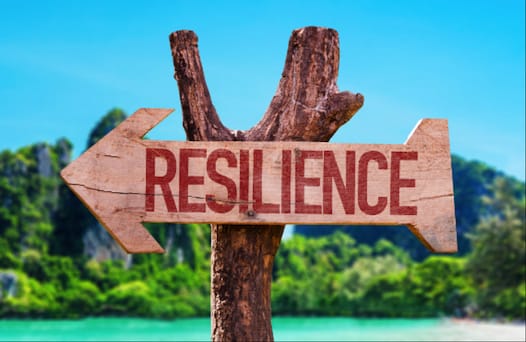Resilient Leader: A Sailor Through The Pressure of Modern Work Life
October 27, 2022 2022-12-11 15:53Resilient Leader: A Sailor Through The Pressure of Modern Work Life

“Resilience is accepting your new reality, even if it’s less good than the one you had before. You can fight it, you can do nothing but scream about what you’ve lost, or you can accept that and try to put together something that’s good.”
Elizabeth Edwards
Resilience is the human capacity to face adversity, challenges, setbacks, and trauma, and then bounce back and thrive from these challenges in order to make life easy. It is essential to have a resilient leader for any organization. Resilient leaders have the ability to sustain their energy level under pressure, cope with disruptive changes and adapt without engaging in them. They bounce back from setbacks. They also overcome major difficulties without engaging in dysfunctional behavior or troubling others.
We have great leaders such as Abraham Lincoln, Mahatma Gandhi, and Nelson Mandela, among many others in history, who have proven the power of true resilience in the face of an extremely unfortunate situations. These leaders did not just survive and adapt, but also succeeded in proving the true meaning of resilience in every field of life!
How will we show resilience during this adversity as individuals and organizations and not just adapt to survive, but attempt toward success, and achievement and leave the impression of true resilience in everything that we do?
Before we understand ways to build resilience, it will be worthwhile to understand areas of Resilient Leadership
4 Important Areas of Resilient Leadership
- Physical Resilience: Enhancing immunity for the body’s capacity to respond to stressors with power and stamina, as well as recover from injury.
- Mental Resilience: The ability to maintain or regain cognitive capacities that risk degradation and to allow creativity to appear.
- Emotional Resilience: It centers on understanding, appreciating, and regulating emotions, and your ability to calm down your frantic mind when encountering negative experiences and consciously choosing feelings and responses.
- Social Resilience: It reflects a leader’s capacity to work with his team to go through and recover from stressors.
4 Ways to Build Leadership Resilience
1. Contemplate and Assess:
Leaders should have a strong grip on themselves to successfully mentor or guide others through times of adversity and uncertainty. Through introspection and feedback from trusted colleagues and peers, leaders can identify their weaknesses and strengths, as well as their motivational drivers, and approach challenges with a determined sense of emotional intelligence. By developing this ability, a leader can tackle all adversity and can sail through turbulent situations.
2. Learning in a very Disciplined Manner to Grow:
Among the number of traits that characterize effective leadership, Koehn says resilience is one that can be honed and strengthened. Koehn says, “Resilience is not an endowed gift,” she says. “It’s not a DNA deposit that was made when we were born. There’s no resilience app. It’s a learned capability and it’s very much like a muscle in that we make it stronger by using it. Each time we navigate through a crisis and find a little strength in it, we can pick out an insight we can learn from and resolve not to get bitter, weaker, smaller, or more frightened, but, rather, to get the tiniest bit braver,” She says.
We learn and come out stronger every time we face organizational challenges.
For this, please visit https://www.samvaadshaalaa.com to oversee the courses being offered to build resilience.
3. Be Result-Oriented:
The result is vitally important to work performance that leads to a host of benefits, like;
- Higher job satisfaction
- Stronger social support in the workplace
- Greater organizational commitment among employees
By taking a result-oriented approach to work and instilling a sense of meaning among your team, you can lead more authentically and entitle them to unleash their potential and perform at their best in the pursuit of organizational success.
4. Develop Relationships:
When facing seemingly overwhelming crises, trusted friends and colleagues can be a source from which leaders can draw strength and guidance to cope with the crises. Growing your network with diverse backgrounds and talents helps you to develop the confidence which is required to tackle the obstacles in the process of running the organization.

